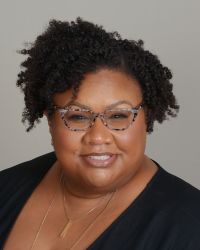Growing evidence suggests that increasing the diversity of the health care workforce is essential to improving access to and the quality of care in communities historically underrepresented in medical professions. BIPOC doctors are more likely to offer treatments in communities of color, treat Medicaid-eligible, uninsured, and patients with complex medical conditions as a result of unmet health-related social needs. Additionally, patients who share the same racial or cultural background as their doctors experience better outcomes and are more likely to be offered preventive care recommendations. Patients are also more likely to report receiving higher quality care and improved communication when their healthcare team members speak their language.
Medical professionals and students' diversity—or lack thereof—affects not only how patients receive treatment, but also how faculty design and deliver the curriculum for medical schools and how medical research is carried out. So how can organizations make sure that the healthcare workforce grows more diverse?
Panelists discuss this and other topics including:
- What the SCOTUS affirmative action decision means for the healthcare workforce
- Who is responsible for addressing inequities in health and broader society
- Challenges faced when addressing inequities in communities
- Ways inequality and social injustice impact health
And more....
Listen to the discussion below:




